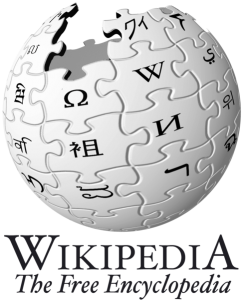I mentioned in passing during this week’s podcast that information sources available via the local library usually went through far more quality control than Wikipedia, without wading into the considerable controversy surrounding the world’s largest online encyclopedia.
As I expect everyone reading this knows, Wikipedia is a “group-sourced” Internet-based reference tool in which encyclopedia-like articles on countless subjects are written by individuals working around the world to create, edit and proof pieces on over four million subjects.
For a variety of reasons, there is a strong affinity between Wikipedia and the search capabilities of tools like Google and Yahoo, which means it’s more than likely a Wikipedia reference will appear on the first page of a search on almost any topic.
Critics of the Wikipedia experiment decry its unprofessional process of content creation, noting the anonymous nature of the authors of articles (anonymity is a requirement for Wikipedia writers and editors). While the site allows people with expertise in obscure areas to publish work that could never find a home in a traditional encyclopedia, it also allows any amateur, hack or incompetent to submit a story and (even worse in the eyes of Wikipedia’s critics), make modifications to anyone else’s submitted work (meaning the dolt can veto the Nobel Prize winner by virtue of his or her Wikipedia login ID and aggressiveness).
Wikipedia’s defenders cite the power of the Wikipedia community to police its work, noting that even if someone with nefarious motives might alter a story to fit a particular agenda, others would soon show up to correct any errors of fact. And a hierarchy of editors and supervisors is available to appeal to in case a tie needs to be broken between different people disagreeing on how to write and edit the same article.
I’ll admit I found this “gravitating to the mean” argument compelling, until I read Ryan Holiday’s Trust Me I’m Lying (a book mentioned a couple of podcasts ago), who pointed out that even if a story on a controversial subject (like the Gulf War) might eventually get to the point that everyone agrees represents quality scholarship, while fights over the piece are going on, millions of people might be accessing the less-than-final version of the story (as part of school or news research), meaning that for months or even years, they are exposed to a version of an allegedly scholarly article that even Wikipedia editors would admit was a less-than-accurate work in progress.
I know of some schools who deal with this issue by simply giving any student who includes a Wikipedia reference in a research paper and automatic F.
That seems a bit harsh to me, but I think there are a few rules that should be followed when considering Wikipedia as a source for background knowledge:
(1) Wikipedia should be treated not like an encyclopedia (such as Britannica or other professionally edited works), but like a search engine. Just as you would never include the bare list of results from a Google search in a list of sources, so too you should not think of a Wikipedia story as a source but as a pointer to other sources of information (which themselves may vary in quality) available via links and footnotes in the original Wikipedia entry.
(2) The one exception I would make would be in cases of smaller, non-controversial subjects (such as stories involving science or technology) where Wikipedia gives experts in these highly specialized areas the chance to write pieces about subjects they know well. And in subjects where change happens fast (such as science and technology), a Wikipedia story of this type might provide more up-to-date detail than one of the date-sensitive searches I talked about during the podcast.
(3) On any controversial issue (especially where politics is involved), Wikipedia should be avoided altogether.
I know this last suggestion might seem like strong medicine, but over the years communities of partisans have emerged who have learned to ape the tone of scholarship enough to create Wikipedia articles shaped more by their agenda than by the quest for consensus regarding “the truth.” And when the stakes are high (as they are during a national election), whatever consensus emerges tends to be shaped more by bullying and ruthlessness than scholarly skill or merit.
Keep in mind that Wikipedia has always represented just one source among many (even on the Open Web). And while the site does bring something to the party, there are an awful lot of other information out there (both online and off) that will probably provide you a better foundation upon which to build your thought and opinions.
The post Wikipedia – Friend or Foe? appeared first on Critical Voter.
